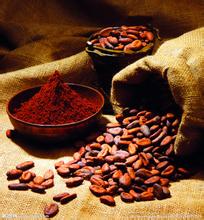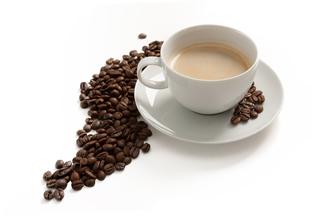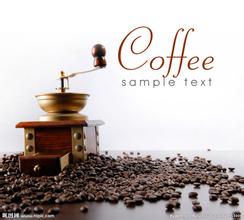Brazilian coffee beans Santos Ethiopia Jimamoca coffee beans
Classification criteria for Brazilian raw coffee beans:
According to the number of defective beans and sundries, it is divided into seven grades of N0.2-No.8, the smaller the number, the higher the grade, and No.2 is the highest grade. According to the size of the particles, it is divided into 9 grades of S12-S20, the larger the number, the bigger the particles, the higher the grade. S20 is the largest particle.
Brazilian coffee generally refers to coffee produced in Brazil. There are many kinds of Brazilian coffee, and like other Arabica coffee, Brazilian coffee is called "Brazils" to distinguish it from "Milds" coffee. Most Brazilian coffee is unwashed and sun-dried and is classified according to the name of the state of origin and the port of transport. Brazil has 21 states and 17 states produce coffee, but four of them produce the largest, accounting for 98 per cent of national production: Parana, Sao Paulo, Minas Gerais and Espirito Santo, with the southern state producing the most, accounting for 50 per cent of total production.
Main varieties
Although coffee is diverse, Brazilian coffee is suitable for the taste of the public. For example, coffee produced in the northern coastal areas has a typical iodine taste, reminiscent of the sea after drinking. This coffee is exported to North America, the Middle East and Eastern Europe. Another kind of coffee that is interesting and worth looking for is washed Bahia coffee. This kind of coffee is not easy to find because Brazil is the world's largest consumer of coffee after the United States, and many of the best coffee can only be found in its domestic market.
Gemma Ethiopia djimmah jimma Gemma mocha coffee beans freshly roasted coffee beans 200g
Ethiopia (Ethiopia) famous coffee: Harald (Harrar), Yega Xuefei (Yirgacheffe), Gemma (Djimmah)
Senlin coffee, which grows in the natural environment and shaded by natural forest trees, has sufficient plant change mechanism to resist the threat of diseases and insect pests, high yield and high quality aroma and flavor. Forest mocha beans account for only 10% of the total coffee production. Jimma (djimmah) Mocha, southwest of Ethiopia, is in the heart of Ethiopia's world coffee birthplace. Coupled with wild forests, it feels like a coffee pilgrimage.

Important Notice :
前街咖啡 FrontStreet Coffee has moved to new addredd:
FrontStreet Coffee Address: 315,Donghua East Road,GuangZhou
Tel:020 38364473
- Prev

Introduction to the quality of coffee beans semi-automatic coffee machine; tutorial
Columbia Super medium roasted Coffee (Colombian Supremo Medium Roast) and Colombian Organic Super medium roasted Coffee (Organics Colombian Especial Medium Roast) of Newmans Own brand won the first and second place respectively. Coffee and coffee atlas according to PR Newswire, the tasting team of Consumer report [1] tasted 23 participating products.
- Next

How much pressure does it take to foam coffee beans?
At present, the only and most professional coffee shop in China is Haofang Coffee near Lize Bridge in Beijing. This kind of roasting cafe has a long history in Europe, but it is still very short in China. If you are in Beijing, you must go and see it. There are coffee beans from the exhibition area and live demonstrations of the coffee roasting process. I also participated in it once by chance.
Related
- Does Rose Summer choose Blue, Green or Red? Detailed explanation of Rose Summer Coffee plots and Classification in Panamanian Jade Manor
- What is the difference between the origin, producing area, processing plant, cooperative and manor of coffee beans?
- How fine does the espresso powder fit? how to grind the espresso?
- Sca coffee roasting degree color card coffee roasting degree 8 roasting color values what do you mean?
- The practice of lattes: how to make lattes at home
- Introduction to Indonesian Fine Coffee beans-- Java Coffee producing area of Indonesian Arabica Coffee
- How much will the flavor of light and medium roasted rose summer be expressed? What baking level is rose summer suitable for?
- Introduction to the characteristics of washing, sun-drying or wet-planing coffee commonly used in Mantenin, Indonesia
- Price characteristics of Arabica Coffee Bean Starbucks introduction to Manning Coffee Bean Taste producing area Variety Manor
- What is the authentic Yega flavor? What are the flavor characteristics of the really excellent Yejasuffi coffee beans?

